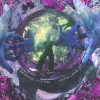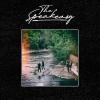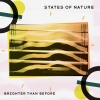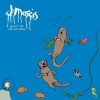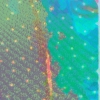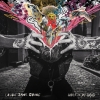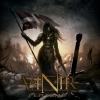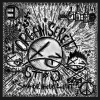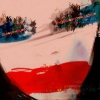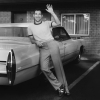Gig Reviews

Thy Catafalque
Stengade, Copenhagen, DEN - 6/4
Album Reviews

Nine Inch Nails
Hesitation Marks
Written by: AP on 18/09/2013 18:17:57
In 2009, Trent Reznor put his legendary Nine Inch Nails on hiatus, following a world tour which included a triumphant performance at Denmark's Roskilde Festival. Once the disaffected poster boy for drug-riddled excess and industrial angst, Reznor had grown into a healthy, married father of two with respectable awards and a number of bold technological ventures to his credit; and he felt, perhaps, that he could no longer pursue the ideology behind Nine Inch Nails without compromising the band's credibility. And yet, with successful side projects, film scoring and parenthood dictating his existence since then, Reznor was still drawn to return to his musical first child in secret; too tempted by the prospect of recording an album without any external pressure.
It could be argued that the absence of public scrutiny is the reason Reznor drops his guard so much on this fruit of his unpublicised efforts, "Hesitation Marks", and allows him to operate in stylistic territory that, if prematurely divulged, would probably have caused quite a stir among NIN's following. So different and experimental is the approach here that even the band's most devoted fans, used by now to Reznor's fiercely independent spirit and eclectic nonconformity, are likely to have been left scratching their heads at what came out of the man's mind this time.
Gone is the industrial bombast of "Head Like a Hole" and "Wish"; in its place is an intricate, understated and minimalistic experiment with electro-pop reminiscent of Depeche Mode and LCD Soundsystem, though still with a kind of heavy edge that stems from Reznor's natural drift toward the rebellion. In a sense, "Hesitation Marks" combines controlled introspection and self-exposure ("Copy of A") with stoking the fire of Reznor's youth ("Came Back Haunted"), but with a fresh set of tools and techniques that better reflects his interests and obligations at present day; hence the heavy indulgence on modernised electronic influences. There are surprises waiting for discovery elsewhere, too: in the Gorillaz-style electro-funk of "All Time Low", the hypnotic dance beat of "Satellite", the horn section of "While I'm Still Here", and in the New Wave homage of the most peculiar track on the album, "Everything". Thankfully these strange and uncharacteristic songs do work, as they still bear the hallmark of the Nine Inch Nails legend; if only because of Reznor's eclecticism and ability to pen a great song no matter the genre (as also evidenced by the material he wrote for David Fincher's re-make of "The Girl with the Dragon Tattoo", and of course the How to Destroy Angels project).
But in omitting the industrial rock/metal component of their palette, Nine Inch Nails have, to me, also lost a sizable chunk of their multiplexed appeal. Certainly those fans who count themselves metallically predisposed will have great difficulty in accepting such a drastic shift in stylistic direction. Of course, Reznor has earned and exercised for some time now the license to do exactly as he pleases, so for those us willing to accommodate his changing personal interests bleeding through the music there are heaps of rewards to be savoured here on the first half of the album, most of them owing to Reznor's embracing of creative freedom. Unfortunately the second half is much less intriguing, by virtue of a cluster of oppressive, melancholic and extremely dense tracks such as "Various Methods of Escape", "Running" and "I Would for You". But in spite of some unevenness and this sluggish second half, "Hesitation Marks" still contains plenty of the eerie nuances and flashes of genius that Reznor and his producer Atticus Ross are renowned for. This is by no means the pinnacle of NIN's repertoire, but there are enough highlights here to make it well worth the while, and at the very least, one cannot but admire an artist this deep into his career and still striving to challenge both the listener and himself.
Download: Copy of A, Came Back Haunted, All Time Low
For the fans of: Depeche Mode, How to Destroy Angels, LCD Soundsystem
Listen: NIN.com
Release date 03.09.2013
Columbia Records
 Twitter
Twitter Facebook
Facebook